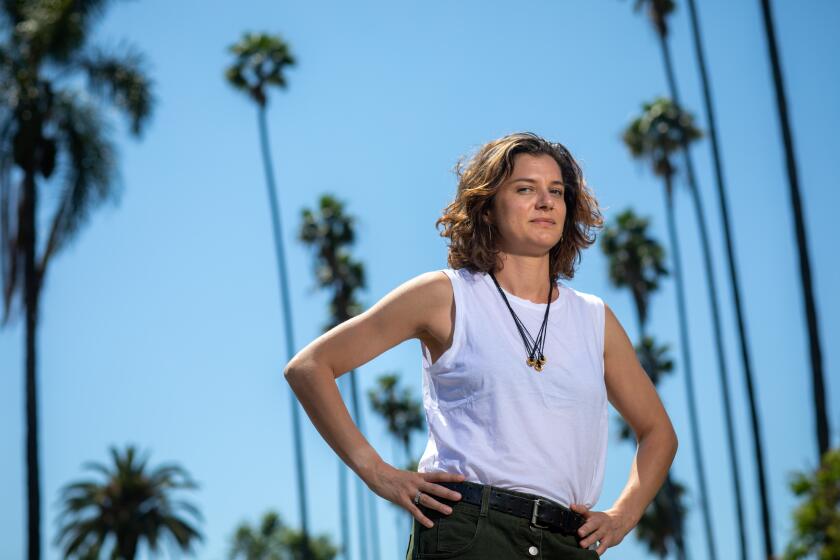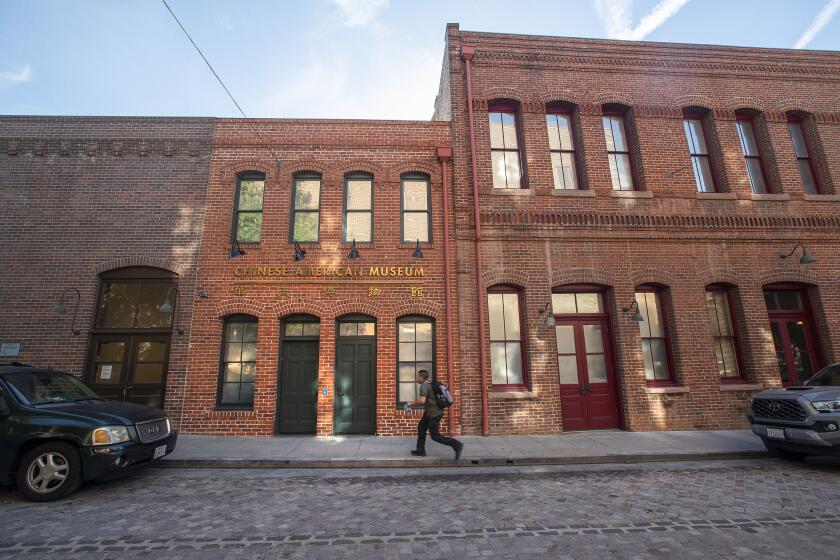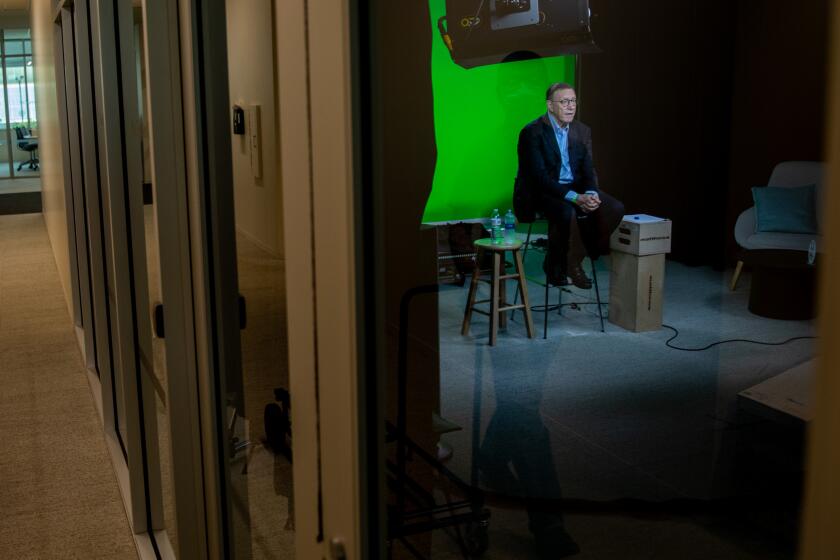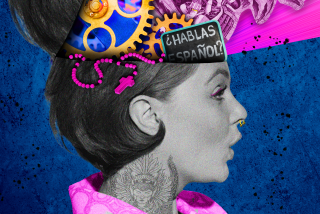Why an L.A. novelist made her immortal Black protagonist an L.A. Times reporter
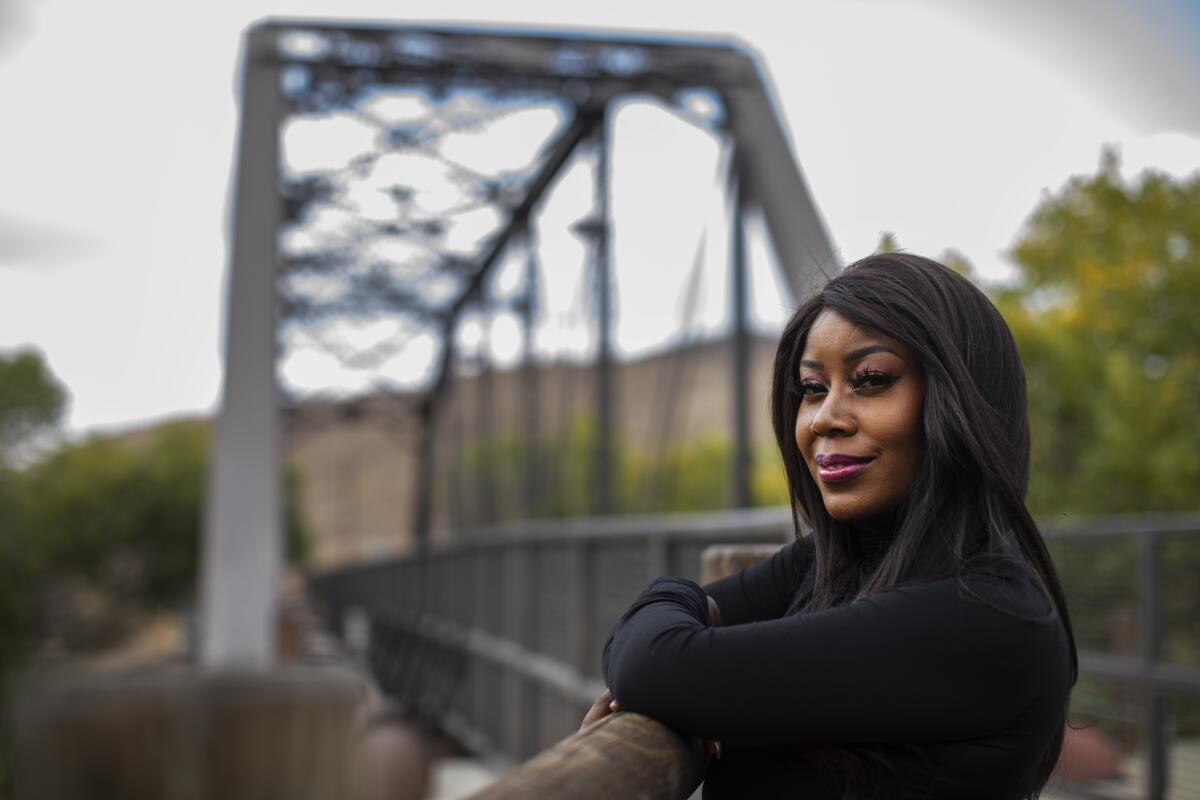
On the Shelf
The Perishing
By Natashia Deón
Counterpoint: 320 pages, $26
If you buy books linked on our site, The Times may earn a commission from Bookshop.org, whose fees support independent bookstores.
Natashia Deón, like her fiction, is too multifaceted to define in a few words. A former corporate attorney, she’s now a defense lawyer working to clear the records of the formerly incarcerated. She teaches law and writing around her native Los Angeles, and in 2016 she became an acclaimed author with her debut, “Grace.”
That novel blended a ghost story with a chronicle of the final years of slavery, in the tradition of Toni Morrison’s “Beloved.” Five years later, her new novel, “The Perishing,” explores a new genre built to last as long as its heroine.
In Los Angeles during the 1930s, a young Black woman named Lou wakes up in an alley with almost no memories. After she becomes the first Black woman journalist at the Los Angeles Times, the groundbreaking gives way to the fantastical as she awakens to an even grander destiny, bound up in the fact that she might be immortal.
This summer, Deón spoke with The Times about the inspirations behind “The Perishing” — chiefly her upbringing as a Black woman in Los Angeles, her hometown paper and the transformations of both over the decades. This conversation has been edited for clarity and length.
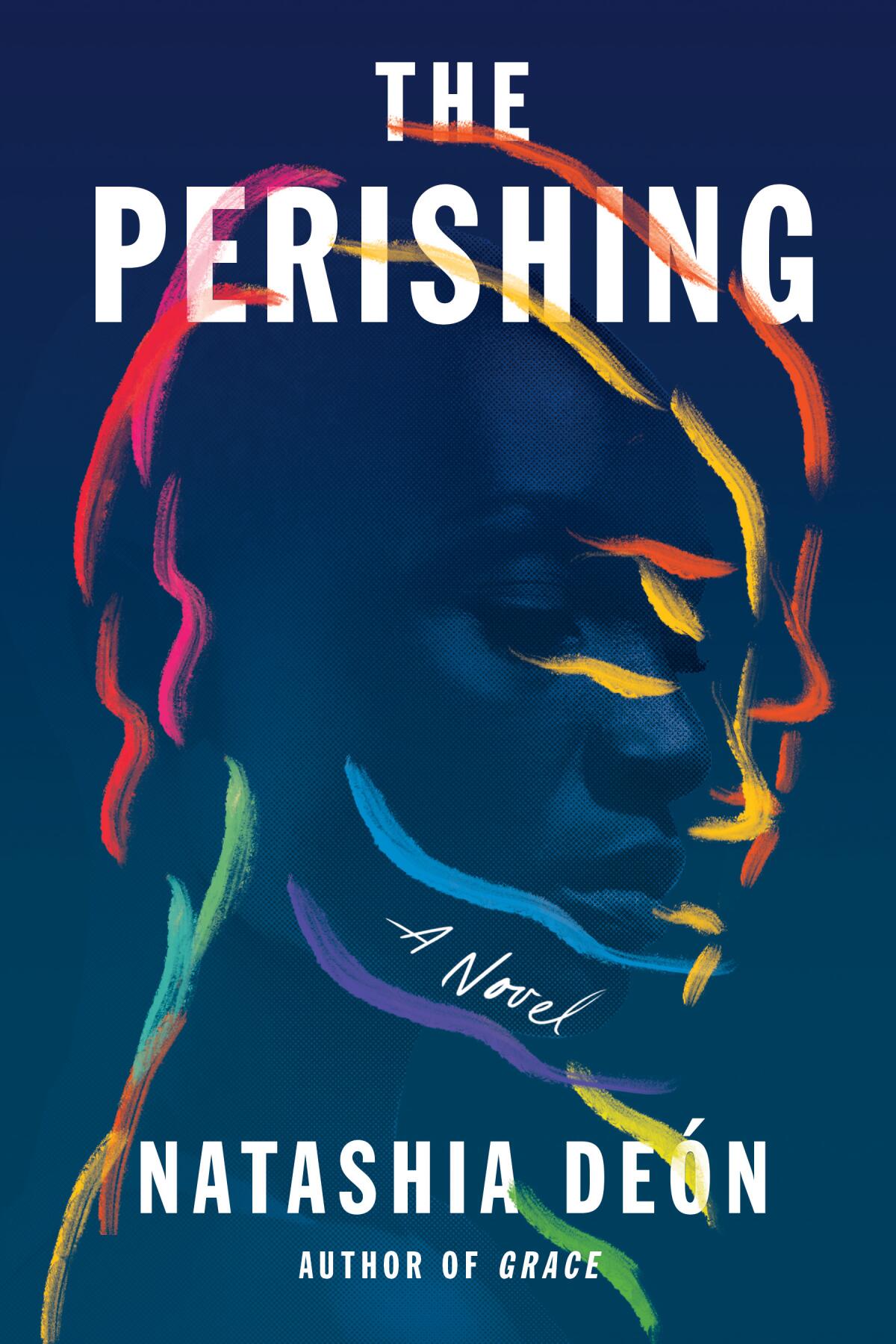
What was your L.A. like, growing up?
I grew up around Jefferson and La Brea, near Dorsey High. It was a Black neighborhood. There was the Black ice cream parlor, the Black church, Black dry cleaners, fish market, the grocery store — called “Boys” then. When I was 10, crack cocaine came to our neighborhood; it had a devastating effect. We had pastors, teachers, police officers, people we trusted in the community, hooked on it.
With all that danger, we moved to Santa Clarita. It was the first time I was followed in stores, the first time I realized the color of my skin was an indicator to others of the content of my character. When Dr. King was killed — [my mom] sang in his choir for a time — many members of our church moved to West Adams and started this church, which is still there: West Adams Church of Christ.
Pochoda walks through the setting for her new noir, “These Women,” and talks about centering the victims and past collaborations with Kobe Bryant.
How did your personal experience shape “The Perishing”?
I’m grieving L.A. at the same time as it’s still alive. It’s like grieving somebody who was addicted to something. You know, you’re losing them, but they’re still here. That’s very much what L.A. feels like to me. Even at my church, many elders passed away — or the guy who owned the ice cream shop was hit by a car and killed right there at the intersection. I feel like the further I move from L.A., the more I’m losing.
I’m talking about the love and camaraderie; it’s different, even among Black people. In the ’90s, due to gang violence, we lost a whole generation of Black boys. The survivors are who became the baby daddies. All of it’s just a different way to be Black in L.A. That’s kind of why I’m grieving it. I think that’s why I chose L.A.
There is a refreshing contrast in your book between Hollywood and the rest of the city, which of course came first.
Chapter 1 of “The Perishing” opens, “Los Angeles has always been brown.” Before the Golden Age of Hollywood, there was the city of Los Angeles; one that fought for water to prevent another browning drought, or, maybe more truthfully, to make lawns green. A place that Afro-Spaniards were part of establishing. Before them, Native Americans. I wanted to show Los Angeles through a lens outside of Hollywood and through the eyes of a Black woman who arrived in the city as detached as possible. I wanted to show how our city, a resort of cities, has made a home for so many.
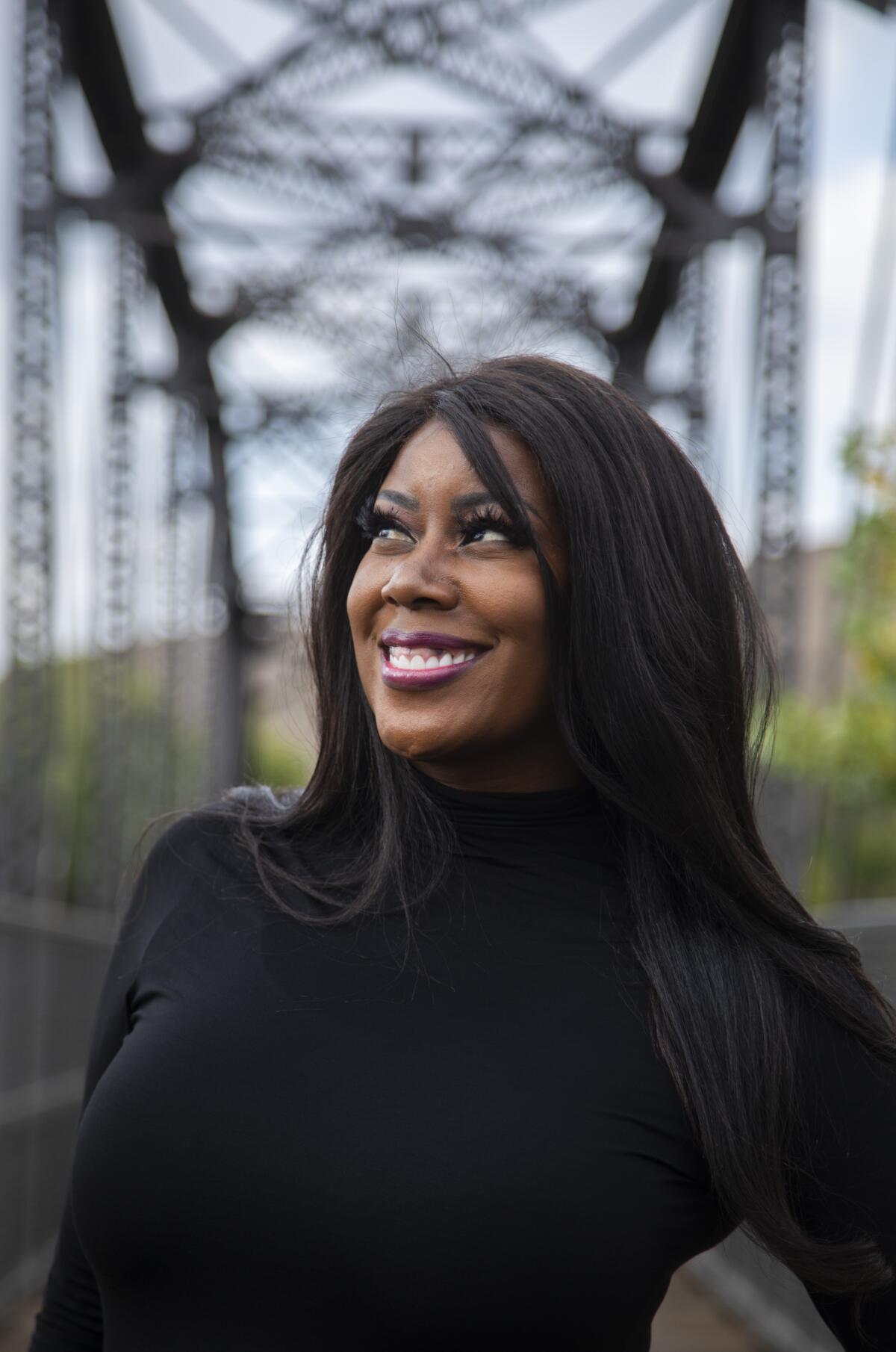
Why did you decide to set it in the 1930s in particular, and why try out this new genre?
I like science fiction and fantasy. I like the ability to move through time and become and re-become. I feel like that’s what it means to be a Black woman. Often in this country, we don’t just have our grief to carry. If the boyfriend messes up, a sibling messes up, we carry that and it can often change the trajectory of our lives. George Floyd being killed or something like it, that affects us deeply. We have to keep transforming, keep transforming: “How do I have to be today in this space?” Then, tomorrow happens.
I thought about the 1930s because I knew I wanted to cover two historical events. I had a dream that’s in the novel. During the dream, I was a Black woman in L.A. with a Chinese man I’d fallen in love with — was white passing, but I was still Black. This terrible thing happened in the dream. I cried when I woke up at 3 in the morning and it was so real to me that I started Googling. I learned about the Chinese massacre in L.A. and it fit the setting in my dream. I knew I wanted to include it but didn’t know how yet.
Two reports — by the city of L.A. and Monument Lab — reveal blind spots in how California marks its history. A memorial to the Chinese Massacre sets a new agenda.
The second reason was, I grew up in Santa Clarita at the mouth of San Francisquito Canyon, which is where the St. Francis Dam broke and killed all those people — washed the bodies way out to Ventura. They didn’t count the migrant workers; brown people weren’t counted.
This is not just a fantasy novel in a way but also a nonlinear story. Why?
I wanted freedom to go where I wanted, do what I wanted on the page, and immortality was the best vehicle for me to show that repetition. How, as a Black woman, I could exist in 1960 or 1990 or 2015 or 2021 and be in a Black Lives Matter protest (different name but for the same rights) in Los Angeles. Same with women’s rights, violence against queer bodies. We need to see ourselves and decide we don’t have to be monsters.
I have to ask how the Los Angeles Times became so important in your novel.
I’m not sure when they had their first Black reporter, but the reason I chose the L.A. Times is because I wanted to first write about the Black newspapers but there was limited information. There was research that kept pointing me back to The Times. I kept going back there to hear the voice of the people, the diaries, the obits. Lou largely works the “Death Desk,” a knockoff of obituaries and “real” reporting, by reporting on the deaths of Black people, occasionally other people of color.
I wanted to honor the work they tried to do even as they were still racist, still failed that time. When I explore the racist past of the L.A. Times, I focus on us. I give as much screen time as possible to what Black people did right.
Two years after the Los Angeles Times reverted to local ownership, the country’s largest metropolitan daily newspaper is facing a painful internal reckoning over glaring deficiencies and missteps regarding race and representation in its pages and its staff.
What were you trying to accomplish with the novel?
To make our country and the world better. I know that’s a lofty goal and too much to ask, but if I could ask for anything, why not this? I wanted to expose our cyclical pattern of harm in hopes that we, collectively, choose to do something different this time. Historically, people have identified different others to abuse and kill. Our arguments, as fresh as we think they are, amount to broken records.
More to Read
Sign up for our Book Club newsletter
Get the latest news, events and more from the Los Angeles Times Book Club, and help us get L.A. reading and talking.
You may occasionally receive promotional content from the Los Angeles Times.
